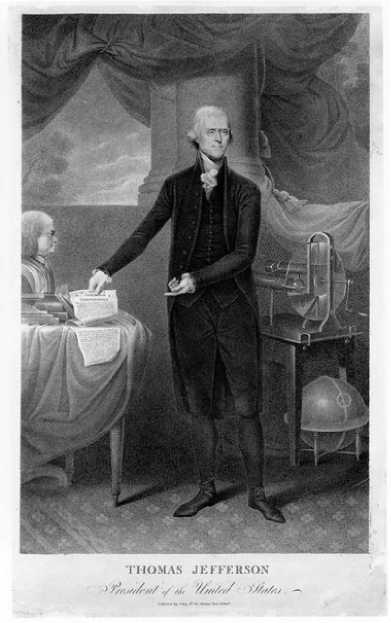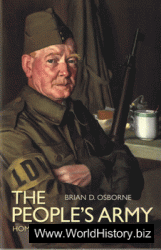
The election of 1800 is noteworthy for the peaceful transition of government leadership from one political party to its opposition, demonstrating that such a process could be accomplished without widespread confusion, villainy, or violence. Throughout history, governments (kings, autocrats, emperors) had rarely been replaced, except by death and inherited succession, without bloodshed or war. This peaceful transition at the dawn of republican ideas ushered in a new century in appropriate style.
President Thomas Jefferson sought to unite the nation in his inaugural address by stressing the republican values shared by members of both parties. The election of 1800 is one of the most important in our history because the transfer of power from Federalists to Republicans was achieved peacefully, but it was not without controversy.
Republicans Thomas Jefferson and Aaron Burr challenged Adams and Charles Cotesworth Pinckney for
The White House in 1800. The Federalists had a number of strikes against them including the Alien and Sedition Acts, the taxes raised to support an undesirably large army, suppression of the Whiskey Rebellion, and Jay's Treaty. Jefferson was nominated for president, and Burr for Vice president. When the final results were tallied, Jefferson and Burr each had seventy-three electoral votes. Under the Constitution as it then stood, Burr had what he believed was a legitimate claim to the highest office.
The election was then thrown into the House of Representatives, which was still controlled by Federalists. Many of them threw their support to Aaron Burr. The House election was deadlocked through thirty-five ballots until Hamilton finally convinced several reluctant Federalists that Jefferson was a lesser evil than Burr, and Jefferson was elected. Burr, whose ambition knew no bounds, was obliged to accept second place.
Thus control of the republic changed hands. The Federalists lost office in 1800 partly as a result of internal party disputes, but more importantly, because they lost touch with American public opinion. The Federalists also lost the election of 1800 because they were internally divided, a condition resulting from differences between the Hamiltonian "high Federalists" and supporters of John Adams. The Republicans won easily, but now they would have the responsibility to govern, and as many subsequent parties and candidates have discovered, it is one thing to win an election, quite another to govern effectively. For a time, at least, the Republicans would have it their way.
Several points about the election are notable:
• Jefferson called the election a "revolution" because power changed hands with no bloodshed.
• Although it was not considered proper to "run" openly, Jefferson worked hard behind the scenes to get elected.
• The Federalists linked Jefferson to France, challenging his early support for the French Revolution, which by 1800 had a legacy of violent excess.
• A peculiarity existed in the Electoral College in that there was no distinction between presidential and vice-presidential electors: The resulting tie between Jefferson and Burr sent the election into the House. The Twelfth Amendment corrected the problem, and only one subsequent election was decided by the House of Representatives, the election of 1824.
• The Federalist contribution: The Federalists were out of power, but they had created a new Constitution and worked hard to get it ratified, a considerable feat.
Thus the era of the American Revolution ended with the country sometimes weak and insecure. But as Jefferson pointed out in his inaugural address, the American nation was strong and secure overall; the people had found a system in which they could believe, even as they argued and fought over its execution. He said:
We are all Republicans, we are all Federalists. If there be any among us who would wish to dissolve this Union or to change its republican form, let them stand undisturbed as monuments of the safety with which error of opinion may be tolerated where reason is left free to combat it. I know, indeed, that some honest men fear that a republican government can not be strong, that this Government is not strong enough; but would the honest patriot, in the full tide of successful experiment, abandon a government which has so far kept us free and firm on the theoretic and visionary fear that this Government, the world's best hope, may by possibility want energy to preserve itself? I trust not. I believe this, on the contrary, the strongest Government on earth.




 World History
World History









